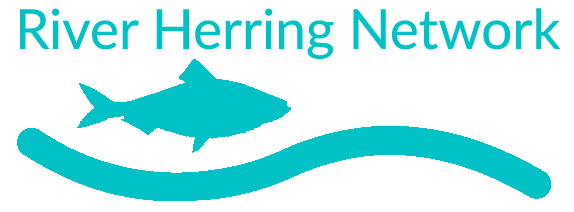Throughout Massachusetts nearly every coastal town has at least one river or stream that is, or has been a river herring run. Alewife and blueback herring (River Herring) have always been an important food source for humans on the Atlantic coast but this once abundant fish stock is now in severe decline coast wide. One indicator of this decline is that the Mid-Atlantic coast fishery peaked in the late 1950s at nearly 34,000 mt before declining to less than 4000 mt in the late 1970s. During the last decade (1996-2005), annual landings have varied between 300 and 900 mt (NOAA’s National Marine Fisheries Service Northeast Fisheries Science Center Dec, 2006). In 2006, Massachusetts implemented a moratorium on possessing river herring in order to protect the population.
Many factors such as overfishing and the catch of river herring as by-catch in other fisheries have led to the decline of river herring, but the easiest factor to see and fix is habitat degradation in their spawning grounds. Since the 1700s the water ways the herring migrate through have become impaired with natural and man made obstructions. A successful migration may lead them through streams and into ponds and lakes that have poor water quality which decreases the annual yield of the young of the year.
In many areas around Massachusetts there are maintenance and habitat restoration projects that are taking place to help give these fish a fighting chance at recovery. These projects can be as small as clearing the debris from a clogged stream or as large as excavating an entire road to install a new culvert for better passage. Regardless of the project, it is most likely led by a River Herring Warden, Herring committees, watershed organizations, volunteers, and private groups. These people put countless hours into caring for runs, and many are experts in their respective fields and environments. The work done does not just benefit river herring populations – it supports the protection of coastal habitats. Wardens and their helpers have worked to create local regulations and have developed water quality monitoring programs to protect the rivers and spawning grounds.
The information learned over their numerous collective years of experience is often not shared with each other. Most professions have a professional society of some sort to turn to for opportunities for learning and collaboration. River herring wardens have had no such network.. This situation not only puts new river herring wardens at a huge disadvantage since they basically learn everything from scratch, but also prevents innovative ideas from being passed along, built upon, and applied to other runs. River herring populations can benefit from herring wardens just simply talking together.
We now have the opportunity to form a network and learn from each other, learn from mistakes and successes on other runs, increase our long term ability to address river herring resource management issues, and work together to achieve the recovery of the river herring runs in Massachusetts and New England.
The goals of this, “River Herring Network” are to support herring wardens in their role as active participants in fisheries management processes, encourage communication among wardens and those that work with them, document and communicate the natural and cultural history of the herring runs in Massachusetts. Our goal for this website is to provide a place to ask questions of each other,discuss experiences and knowledge, develop collaborative projects, and to create an online forum for wardens and advocates to talk about what they are seeing, and what work has to be done, .
I can’t begin to tell you how happy I am to have written this and to ask for your input for both this Network and to work together to aid in the recovery of such an important species in both our local and Atlantic coast food webs.
Jeff Hughes, Wellfleet Herring Warden.

